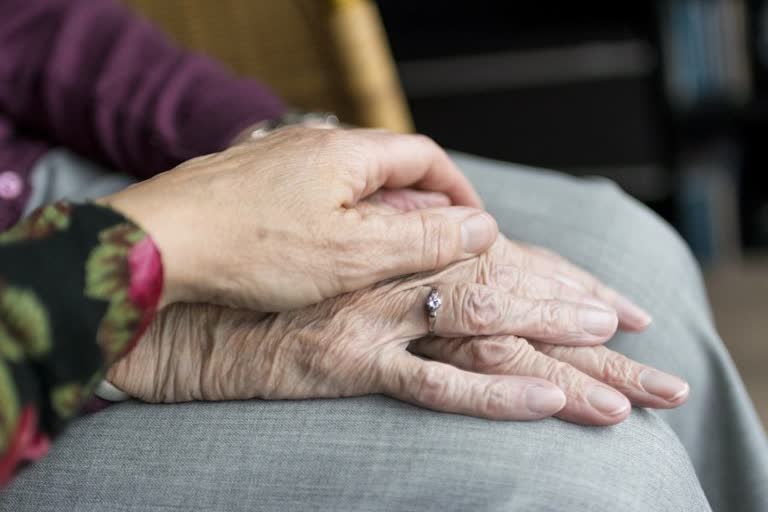Socializing is one of the reasons many Okinawans live healthily to 100 and older, according to geriatrician Dr. Bradley Willcox, who with his anthropologist twin brother, Craig, has been studying centenarians on the islands for more than 20 years. “You can’t walk down the street without running into one,” says Dr. Willcox, who co-authored The New York Times bestseller, The Okinawa Way in 2001, to explain his team’s findings. Here, Dr. Willcox explains some of the secrets to living a long and healthy life, the Okinawan way, which really boils down to “balance”.
Practice ‘Hara Hachi Bu’, eat for health and exercise
Older Okinawans believe the body is a temple and you shouldn’t pollute it. They drink alcohol in moderation and generally don’t smoke much. And they’re very active people, their caloric intake to output is always in near balance and often net-negative, so they burn a lot of fat. Their diet has been largely plant-based, so not calorie-dense. They eat over a kilogram of vegetables and fruits and legumes, like soya beans, a day. It’s part of every meal. Instead of bread, the chief carbohydrate has been the sweet potato, which has a low glycemic load and lots of plant compounds, particularly colourful flavonoid compounds that really can help with overall health and possibly slow the aging process. They also practice hara hachi bu – eating until they’re just 80% full.
Be positive and find your ‘Ikigai’, sense of purpose
All the centenarians we meet have a positive attitude. They are generally optimistic, and have this laissez-faire, carefree approach to life – they’re fun-loving people. I think it’s really important to enjoy life as you age. They also have something we call ‘ikigai’, which is the Japanese word for a sense of purpose. One guy was 102 years old and his ikigai was these two prize bulls – he went to see them every day, to take care of them. Another person’s ikigai might be family or faith.
Stay mentally engaged
There’s no word for retirement in the Okinawan language, so until recently, it just wasn’t a concept. You just did what you always did, so if you’re a farmer, you still farmed. I think once you stop doing something that you’ve done, especially if you enjoyed doing it, and it gave you a sense of purpose, you could go downhill quickly. So the idea is just to stay engaged. That helps them a lot with life satisfaction and it decreases healthcare costs because people are staying active physically and mentally their whole lives.
Join a ‘moai’, social group
Okinawans have large families and strong social support networks. Their communities are really close-knit and everybody knows everybody. They have social gatherings in groups known as 'moai'. The women chat about stuff, they drink green tea, and maybe have a little dessert, and the men might smoke cigarettes, and drink alcohol, which might partly explain why they don’t live so long as the women. But generally, they love to get together.
Okinawa had the lowest healthcare costs in all of Japan, despite being the poorest, because they were healthier. In 2000, Japan implemented the Long-Term Care Insurance Program throughout the country – and it involved paid daycare for adults. Okinawans, being social types, make the most of it – and it drives down healthcare costs over the long term because people with more social contact will be happier and healthier.
Stress less and rethink your relationship with time
You’ve probably heard the term ‘hurry sickness’ – we’re all trying to make deadlines. In the COVID-19 pandemic, lots of us can work from home, but then we all get consumed with calls. Okinawans have a slower sense of time, nothing seems to start on time, but they do get stuff done eventually. And at the same time, they have these stress-resistant personalities, throughout history – they have learned how to deal with tragedy and pain.
We’ve even found recently in our research in Hawaii, a stress-resilience gene, called FOXO3A, that’s associated with human longevity. If you have just one copy from your mum or dad, you have two to three times the chance of living to be 100. The general concept is it protects you against the bad effects of diseases and I think probably other stresses on the body. Okinawans have a very minimally higher percentage of this gene - but they make the most of it.
Embrace your spirituality
Okinawans are very spiritual people and they’re very practical people when it comes to spirituality or religion. Every year, they visit their ancestors and have a picnic and talk to them like they’re still there. They maintain this connection through the generations, so there’s a sense of continuity there. They have their own indigenous religion, that’s more animist, so they believe there’s spiritual energy in everything.
Traditionally the religion was run by women, they were priestesses. There are sacred groves around Okinawa, where the women still go and meditate and pray for peace and health. Buddhism has come into the culture a little bit, but you still have this indigenous religion. Every village has a priestess and the women are very in tune, not just with themselves but with nature. They’re among the most healthy and powerful women I’ve ever seen.
(World Economic Forum)
Also Read: Covid pandemic caused biggest decrease in life expectancy since World War II: Oxford study



